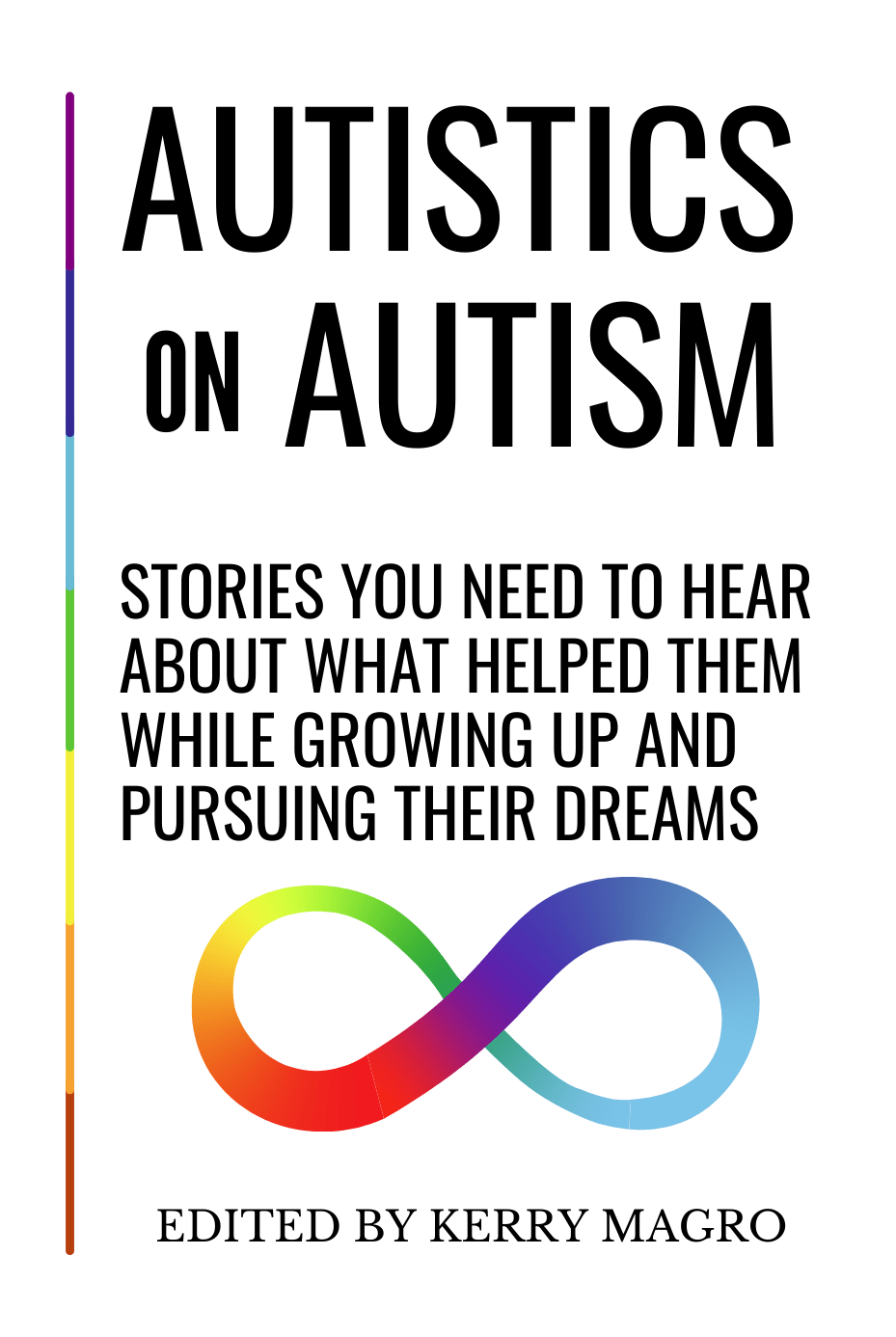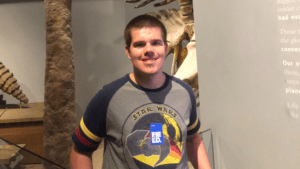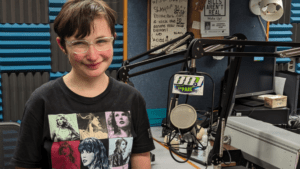This guest post is by Samuel Broady, a young man who was diagnosed with autism at 2 and plans to attend the Columbia College Chicago. Samuel is applying for the Spring 2023 Making a Difference Autism Scholarship via the nonprofit KFM Making a Difference started by me, Kerry Magro. I was nonverbal till 2.5 and diagnosed with autism at 4, and you can read more about my organization here. Autistics on Autism: Stories You Need to Hear About What Helped Them While Growing Up and Pursuing Their Dreams, our nonprofit’s new book, was released on March 29, 2022, on Amazon here for our community to enjoy featuring the stories of 100 autistic adults.
I was diagnosed with autism at two years old. I was non-verbal and considered borderline severely autistic. I experienced many meltdowns and my parents struggled to help me despite their hard work. I was fortunate to use many resources including speech, occupational, feeding, and behavioral therapies throughout my life that greatly improved my functioning, along with the natural progression of growing up. However, one particular aspect that I believe was crucial to my growth and my relatability to the world around me was the art of cinema.
As a child, I obsessed over movies much more than my peers. For instance, the Star Wars franchise has been a favorite of mine since I was seven years old. Just as children immerse themselves in fictional worlds with toys and costumes that reflect pop culture, I immersed myself in the worlds of my favorite movies because they lit a spark of imagination for me. What sets me apart from most neurotypicals is that the movies I watched were more than entertainment. To a certain degree, they replaced my own reality with realms that I could understand more easily. I was transported when I stimmed, repeating every word of dialogue, imitating actions, visualizing settings, and essentially living out the stories I watched unfold. As a nonverbal child, movies provided language that I didn’t have on my own. It helped me find ways to relate to the world around me as I grew. As a young adult, I can now relate to others by using a typically shared interest. While my autism necessitated my need to escape reality and perseverate on something I familiarized myself with, movies allowed me to find my way back to the world by using concepts that I learned from them and applied to my daily life.
Since film provided me with a foundation for communication and relatability, my passion for the art only grew stronger. I didn’t simply enjoy watching movies, but I began to develop more of an analytical mindset towards them, which is a common trait for autistic people. They tend to think in a more logically consistent manner than neurotypicals do. As an autistic person, I have difficulty letting something be the way that it is without knowing why. I like analyzing the philosophy of it in order to gain a better understanding of what I’m experiencing. When I see movies that make more logical sense and offer more variety of cinematic elements, I feel deeply satisfied with the interpretations, lessons, and emotions that they provide me with. As time passed, I gained appreciation for more well-made movies that focus on the atmosphere and substance of what they’re presenting because I highly value details and subtlety. Fortunately, the mood and theme of a movie are great opportunities for both elements, and if executed well, they create a sense of meaning and importance that relates to my life in specific ways. For instance, good lighting can not only aid in storytelling, but also showcase solid visuals and meaningful symbolism. Being on the spectrum, immersive stories including such factors are my distraction from the challenges that I face apart from others around me.
Cinema gave me a reference point for any concept that I deemed incomprehensible. I believe my autism has shaped my perspective in such a way that will benefit the communities in which I plan to educate myself. I desire to tell stories that will help others see the world through different lenses, enable their own style of storytelling, and inspire the next generation of filmmakers. People with disabilities have potential to use cinema as assistance in their growth and present their unique mindsets as motivation for future directors. And I strongly look forward to taking part in that change.
Follow my journey on Facebook, my Facebook Fan Page, Tiktok, Youtube & Instagram.
My name is Kerry Magro, a professional speaker and best-selling author who is also on the autism spectrum. I started the nonprofit KFM Making a Difference in 2011 to help students with autism receive scholarship aid to pursue post-secondary education. Help support me so I can continue to help students with autism go to college by making a tax-deductible donation to our nonprofit here.
Autistics on Autism: Stories You Need to Hear About What Helped Them While Growing Up and Pursuing Their Dreams was released on March 29, 2022 on Amazon here for our community to enjoy featuring the stories of 100 autistic adults. 100% of the proceeds from this book will go back to our nonprofit to support initiatives like our autism scholarship program. In addition, this autistic adult’s essay you just read will be featured in a future volume of this book as we plan on making this into a series of books on autistic adults.















